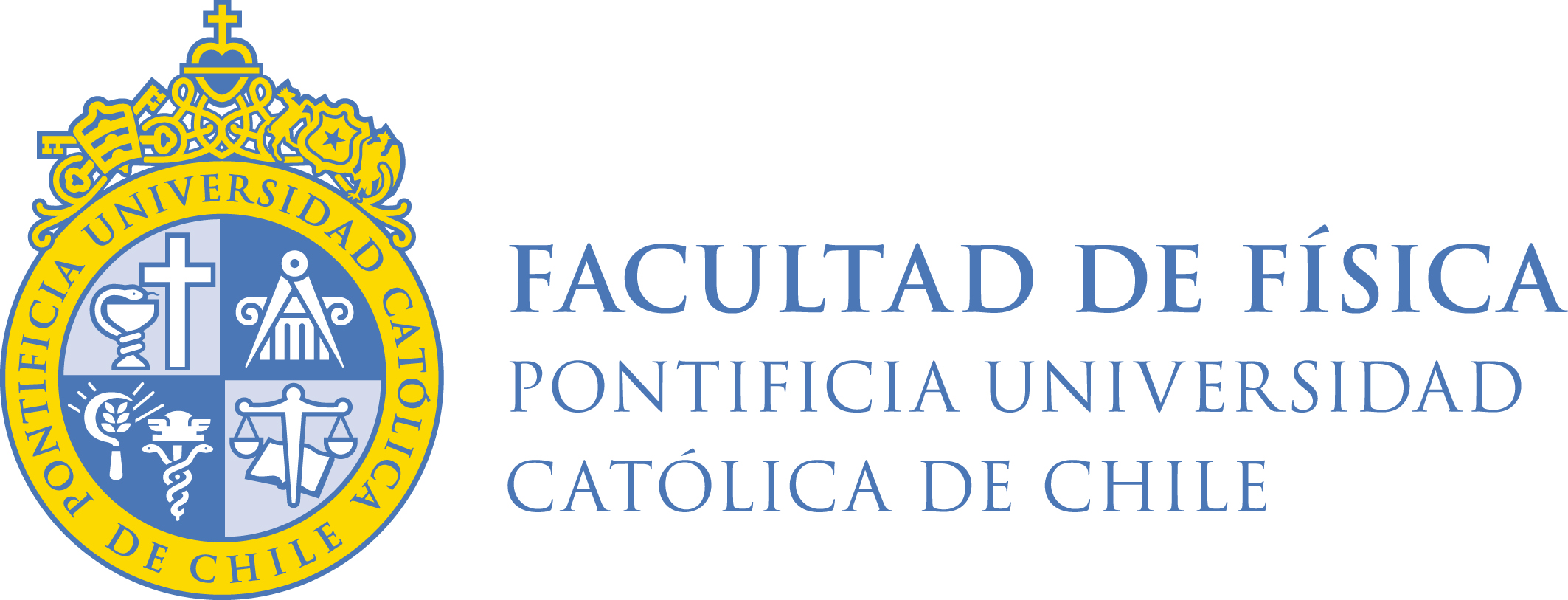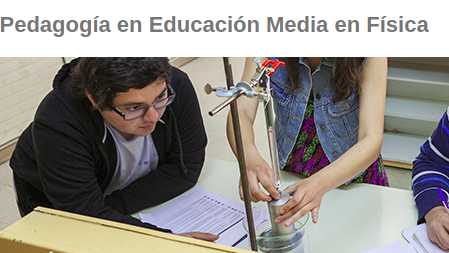Mujeres en Física Matemática: entrevista a Hanne Van Den Bosch
 Revisa la entrevista a Hanne Van Den Bosch, egresada del doctorado en Física del Instituto de Física UC en el IAMP News bulletin April 2022, de la Asociación Internacional de Física Matemática, titulado "Women in Mathematical Physics".
Revisa la entrevista a Hanne Van Den Bosch, egresada del doctorado en Física del Instituto de Física UC en el IAMP News bulletin April 2022, de la Asociación Internacional de Física Matemática, titulado "Women in Mathematical Physics".
Hanne Van Den Bosch studied mathematics and physics at the Université Catholique de Louvain, in Belgium. She then moved to Chile, where she obtained a PhD in physics in 2017 at the Pontificia Universidad Católica de Chile, in Santiago, under the supervision of Rafael Benguria. In the same year she won the Pontificia Universidad Católica de Chile’s prize for best PhD thesis in the areas of Chemistry, Physics and Mathematics. After her PhD, she worked as a postdoctoral researcher at the Center for Mathematical Modeling (CMM) (an affiliate of the Universidad de Chile and CNRS), where she obtained a permanent position as assistant professor in 2019.
Hanne, could you briefly describe your research area?
I work on several lines of research in mathematical physics. One research line is related to Dirac operators in different models, for example two-dimensional models related to physical systems like graphene; we aim at understanding the domains of self-adjointness of these operators and the interplay between the boundary conditions and the spectrum of the resulting operators. Another research line is about non-linear Dirac operators; one long-term goal here is to shed some light on solitary waves, by relying on our understanding and ideas about the corresponding linear operators. Then, a very unrelated one, which is completely new for me, deals with the rigorous study of models describing matter subject to gravitational forces.
What do you like most in being a researcher in mathematical physics?
The main thing I like about research is that you can always learn something new. In particular, in mathematical physics, you can understand many different physical systems studying a few classes of similar equations or methods. I also enjoy how this job gives a chance to interact with several people from all over the world, and I like teaching as well. Overall, I like being part of this kind of world.
How did you discover your passion for mathematical physics?
I discovered this passion very gradually. When I was studying, I did not plan on this type of career. During my master of science in physics, I was not very enthusiastic about the many courses focused on high energy physics and renormalization and so I did not imagine myself doing research in something like that. But then by a coincidence, during my Erasmus exchange at Universitá di Bologna in Italy, I discovered different types of physics, which were and are really interesting for me, like statistical physics and mathematical physics. Later, I came to Chile for personal reasons and I started my PhD in physics. Then I have continued to enjoy doing research, so step by step I have become more aware of my passion for this field.
Have you been supported by a mentor during your career?
Yes, definitely. During my career I had the chance to meet and collaborate with many people, some of them were like mentors for me. In particular, Jean Bricmont, who was my supervisor for my master thesis in Belgium and Rafael Benguria, who was my PhD supervisor in Chile. I think that they made a big difference for me, by supporting me and showing that it was possible to continue in academia.
Do you have any other responsibilities in academia? How much time do you invest in them?
Yes, I do. I am part of the committee of the Center for Mathematical Modeling, which is involved in a really big project including several people and many universities. Being part of this committee means dealing with human resources, distributing travel money, deciding which postdocs to hire, which applied research to develop and so on. It’s an administrative work, very far from my background, but I think it’s very rewarding, since you really feel like part of the university and maybe it can have a concrete and relevant impact.
What would be your advice to a younger colleague, who wants to pursue an academic career in mathematical physics?
First of all, if you come from math then you should really try to understand physics as well and vice-versa, because I think it is very important to comprehend both sides of the problem you are trying to solve. Moreover, on the one hand you should not stress too much since in this job I guess we are questioning ourselves all the time but on the other hand you cannot just relax and wait for good things to happen. I think it helps to discuss with many people. Indeed, from my personal experience you can really learn just by talking with other people in universities. What I appreciate also about the mathematical physics community is that most people, in my experience, are really open to sharing their ideas or insights and are happy to collaborate.
How do you see the situation of women in mathematical physics in your country?
When I was hired as a professor at Universidad de Chile & UMI-CNRS, I was the third woman with a permanent position in the Department of Mathematical Engineering and Center for Mathematical Modeling with over 30 academics in total. After two years there are already five of us in the department. This means that something is changing. When I talk to female undergraduates I often have the impression that they think that this is not a job for women, or maybe that they are not good enough. The reason could be that, here in Chile, from the cultural point of view there are still some quite strong biases. I am from Belgium and there I have never experienced this so strongly. However, at the university I did not experience the same biases. My supervisors and also other people I met have been very supportive and aware of the situation of women working in academia. When I was in Belgium, at the department of mathematics and physics where I studied, there was not a single female professor, while, here in Chile the number of female scientists is growing quite fast.
To summarize, in general at the university there is a deep awareness about gender related problems, but there are still strong biases in the society.
In your opinion what is the most difficult career stage for women in mathematics?
I think it is between finishing a PhD and getting a permanent position. I guess that at each step you have always the same question in mind – “should I try to find another position?”. Answering this question is really hard because you are at an age when you might want some stability in your life, but at the same time you worked really hard to get the PhD and you also want to go on with your research.
What do you think can be done to fix the leaky pipeline?
Although I never personally had bad experiences about the gender gap in academia, I think this is an important aspect which should be faced. First of all I find it very useful to communicate with other women working in academia, at any stage of their career, to see that some problems are not individual but are shared by many women. Talking about these problems can be useful for everybody in the community. What I have in mind is like a group in which there are no specific rules: you could have a mentor but at the same time you can help other people. Moreover, nowadays there are several initiatives to close the gender gap, for example positions opened specifically for women. On one side I know that this is a good idea to increase soon the number of women working in academia. However, on the other side, the people getting these positions could be looked upon as the ones who got the position just because they are women. I do not know yet how to solve that.
What do you think will have changed twenty years in the future? What do you expect and what do you wish?
I hope it becomes more and more normal to have women in academia, so that we do not need to talk about gender gap problems anymore. I am quite optimistic for the future, I have seen a lot of changes recently. There are more women getting permanent positions than few years ago. At my university, at the undergraduate level there is still a big gap, while among PhD students the number of women is increasing. This makes me think and hope that, at some point, the gender gap will really be closed.











